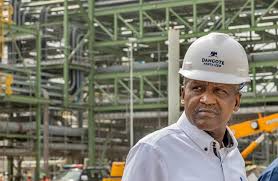Utrecht, 12th February 2021 – The SIFCA group and Satelligence have signed a partnership agreement, supported by Proparco’s technical assistance program, for satellite monitoring of plantations of said group.
More specifically, for the group, a major player in the agro-industry in Africa, it is a question of establishing a reference database of the state of forests on its agricultural units and raw material supply areas.
This system will make it possible, among other things, to map the forest cover in real-time, to prevent the risk of deforestation due to the non-rational management of natural resources by village communities, and to alert and act proactively in order to preserve the natural heritage.
The contract, which covers the scope of Siph group, Palmci and Sucrivoire, subsidiaries of the group, will extend over two years.
During this time, Satelligence will be able to establish a complete visualization of the forest cover and also lead the training of employees in the use of this monitoring system. With this new partnership, the group reaffirms its commitment to “Zero deforestation”.
In June 2020, SIFCA and the Ministry of Water and Forests signed a public-private partnership for the rehabilitation and preservation of the forest cover of Côte d’Ivoire. Proparco has supported SIFCA Group’s development since 2006 through several financings and technical assistance programs. In 2020, Proparco committed to supporting SIFCA for the development and implementation of this satellite monitoring project.
“Our goal at Satelligence is to join companies around the globe in the fight to end deforestation”, says Satelligence CEO Niels Wielaard. “By providing SIFCA with satellite-based information, the company will be able to take action on the ground and engage with local teams to mitigate environmental issues before they materialise. In partnering with SIFCA, we aim to help the company achieve its commitment to “Zero deforestation.”
About Satelligence
Satelligence is a leading satellite-powered geodata analytics company providing daily insights into the global performance of agricultural production and supply chain risks, such as deforestation, forest fires and flooding. We help customers including Mondelez, Unilever, Bunge, WorldBank, Rabobank, Robeco, World Wildlife Fund, and the Ministry of Foreign Affairs of the Netherlands demonstrate progress towards zero deforestation, and make the right sourcing and investment decisions. Commodities covered include palm oil, cocoa, soy, rubber, beef, pulp and paper, biomass among others. Satelligence operates from offices in Indonesia, Ghana, Bolivia, and The Netherlands.
About SIFCA
SIFCA is an Ivorian agribusiness group founded in 1964. It focuses on three business areas of Africa’s economy: oil palm, sugar cane and natural rubber. SIFCA is active across the value chain, from plantations to the processing of raw materials and all the way to finished and semi-finished goods. SIFCA operates in 6 countries and has more than 33,000 employees over 11 affiliates. SIFCA three directing principles are Responsibility, Ethics and Quality – in line with the principles of sustainability that the company has been involved in over decades.
About Proparco
Proparco has been supporting sustainable development for 40 years across Africa, Asia, Latin America and the Middle-East. As the private sector financing arm of Agence Française de Développement (AFD), Proparco provides funding and support to companies and financial institutions, and helps them control the impacts of their activity. In 2019 Proparco has committed 2.5 bn € of financing, focused on key development sectors: infrastructure, especially renewable energies, agribusiness, financial institutions, healthcare and education. Its interventions support private sector actors who contribute to the Sustainable Development Goals (SDGs) by creating jobs and decent incomes, providing essential goods and services, and who contribute to poverty reduction and the fight against climate change. Africa is Proparco’s 1st region of intervention, with 1,285 M€ granted in 2019, representing 51% of its commitments.






Can you be more specific about the content of your article? After reading it, I still have some doubts. Hope you can help me.